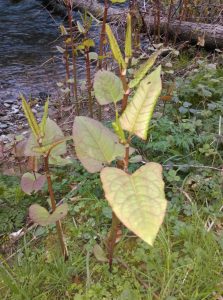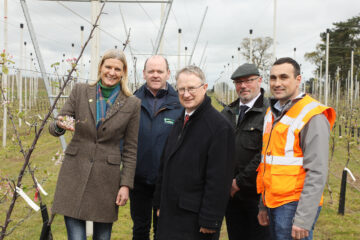Now is an important time to watch out for invasive alien plant species on farms, according to the Teagasc Invasive Alien Species Working Group.
The purpose of this newly-formed group is to create awareness and promote relevant information to the agriculture industry.
The group brings together expertise from Teagasc, the National Biodiversity Data Centre, government departments, farming representatives, Coillte and industry stakeholders.
Catherine Keena, Teagasc Countryside Management Specialist, commented on the matter, saying: “While we do not have all the answers, there is a lot of information available about what to do, and more importantly, what not to do.”
Noting the beginning of the hedgecutting season this month, Keena has called on farmers and contractors to watch out for Japanese Knotweed – currently one of the most widespread invasive alien species in Ireland.
With the start of the hedge-cutting season in this month she has called on farmers and contractors to watch out for Japanese knotweed, currently one of the most widespread invasive alien species in Ireland. The advice is not to cut, mow, strim or disturb this plant.
The optimum time to control Japanese Knotweed with the herbicide glyphosate is when the plant has flowered.

It is crucial to seek professional advice and always follow product label requirements before embarking on control as improper treatment can make the problem worse. Control leading to eradication is likely to take several years, according to Teagasc.
Colette O’Flynn from the National Biodiversity Data Centre says invasive alien plant species are non-native species that have been introduced into Ireland by human intervention with serious consequences for our farms and wildlife as they can cause damage to our environment, economy and human health. The annual cost to Ireland of invasive and non-native species is estimated at €261m.



